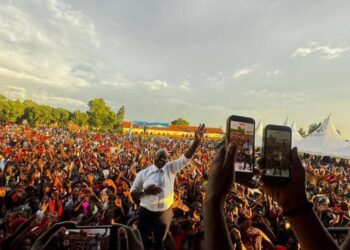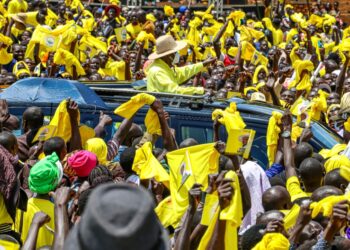The road to a modern Uganda is not a sprint but a long relay race, and the NRM is handing the baton forward with a clear game plan to finish what it started. Four decades of steady building have laid foundations of stability, security, and steady socio-economic change, yet the finish line still shimmers ahead — closer, realer, and within reach. The next five years are being pitched as a closing act: pragmatic, bold, and crafted so that no Ugandan is left on the sidelines.
First on the agenda is wealth creation for the roughly one in three households still trapped in subsistence living. The aim is simple and seismic: lift families out of mere survival and plug them into the money economy so small farms and backyard enterprises turn into viable businesses that pay school fees, build houses, and seed new ventures. Land reform sits hand-in-hand with that mission; resolving land-use rights, ownership disputes, and fragmentation will unlock farm consolidation, scale, and the commercial agriculture Uganda needs to feed its people and fuel exports.
Value addition is the refrain repeated like a chorus — stop shipping raw potential and start exporting finished products that keep jobs and profits at home. Today Uganda gives away a large slice of value when coffee, minerals, and other raw goods leave the country unprocessed. The manifesto promises factories, processing lines, and local refinement so Uganda trades in finished wares, not just raw ingredients.
Irrigation and soil health get top billing as the country weans itself off fickle rain-fed farming. Investment in irrigation, better fertilizers, and soil restoration will stabilize harvests, raise yields, and turn farming into a dependable business rather than a weather gamble. That ties directly into tourism and mining: developing tourist sites smarter and responsibly, and ensuring extractives are linked to local industry, will broaden the economic pie.
Science, technology, and innovation are cast as the rocket fuel for industrial transformation. The plan is to leap from an economy driven mainly by agricultural raw materials and extractives to one powered by higher-value manufacturing, tech-driven services, and more complex exports. Lowering the cost of doing business — through better transport, cheaper electricity, and access to long-term, affordable capital — will be the pull factor for investors and the push factor for entrepreneurs.
Practical infrastructure moves carry eye-catching specifics: a refined-products pipeline to get fuel off the tanker-lined highways, completion of the Standard Gauge Railway and revival of the Meter Gauge Railway to knit the country and reduce logistics costs. Cities, especially the Greater Kampala Metropolitan Area, are slated for modern infrastructure upgrades and affordable housing so urban growth is orderly, productive, and humane.
Jobs and skills are not left to chance. The manifesto targets reduced youth unemployment and underemployment through higher labor productivity, vocational skilling, and creation of gainful work. Industrial parks and export zones will act as job engines, substituting imports with home-made goods while boosting exports. Simultaneously, the creative arts, sports, and talent development are pegged as serious sectors for wealth creation and youth employment rather than hobbies at the margins.
Governance reforms make a comeback as non-negotiable: a robust, sustained drive to stamp out corruption in both public and private spheres to ensure public resources serve the public good. Revenue mobilization receives a spotlight — with the goal of lifting the stagnant revenue-to-GDP ratio so national priorities can be funded domestically and sustainably. Trade ambitions are explicit: expand access to EAC, COMESA, and AfCFTA markets by tackling tariff and non-tariff barriers so Ugandan goods travel farther and fetch better prices.
Social equity remains a compass point. Affirmative programmes will be expanded to bring vulnerable groups closer to opportunity, while health and education reforms focus on quality and accountability. The manifesto singles out two persistent problems: illegal charges in UPE and USE schools and theft and absenteeism in health facilities — problems to be confronted so public services deliver what taxpayers expect.
Environmental stewardship threads through every promise. Climate change and environmental degradation are not afterthoughts; they are central risks to livelihoods and progress. The next five years pledge action on sustainable practices that protect soils, waters, and forests while making the economy more climate-resilient.
In short, the NRM’s “unfinished business” is a practical manifesto of transformation: move subsistence households into the money economy; fix land to free farming; add value before export; irrigate and feed the soil; build rails, pipelines, and roads; lower business costs; grow cities smartly; create jobs and skills; root out corruption; open markets; increase domestic revenue; and protect the environment. It is a compact of continuity and acceleration — a promise to take Uganda from where it is today to a more modern, inclusive, and competitive
The Author is the Deputy Resident City Commissioner for Nakawa Division.
Do you have a story in your community or an opinion to share with us: Email us at editorial@watchdoguganda.com














